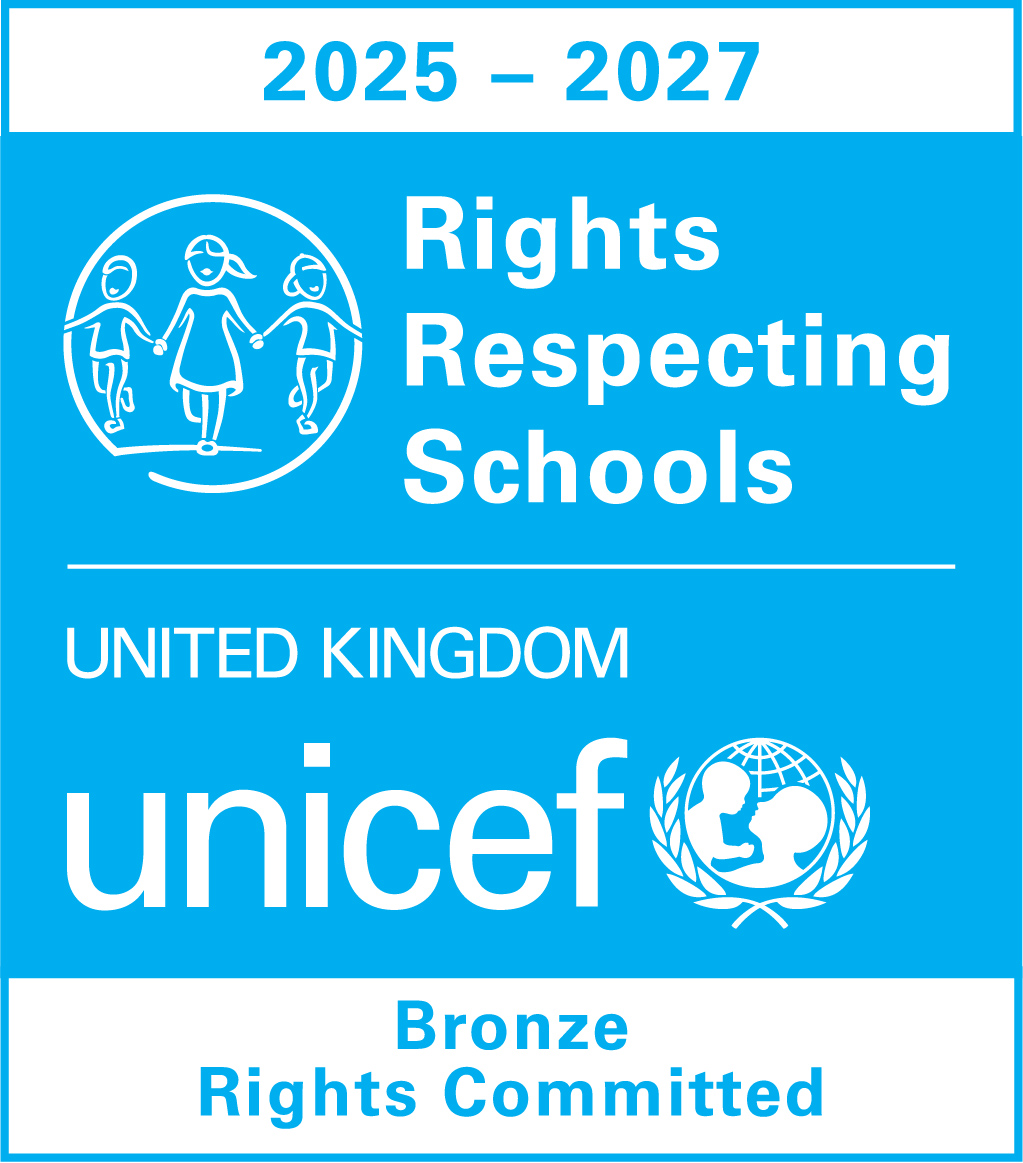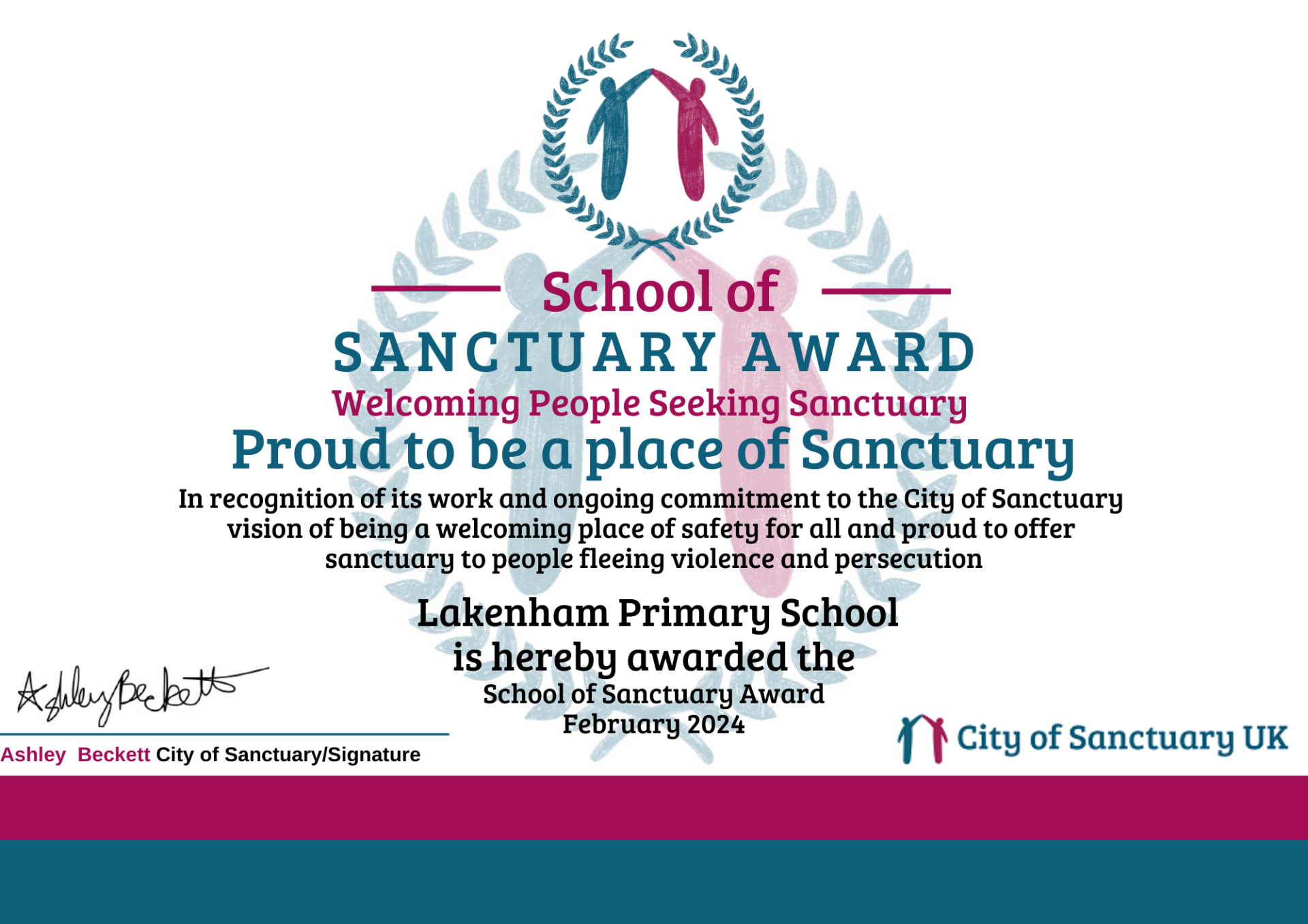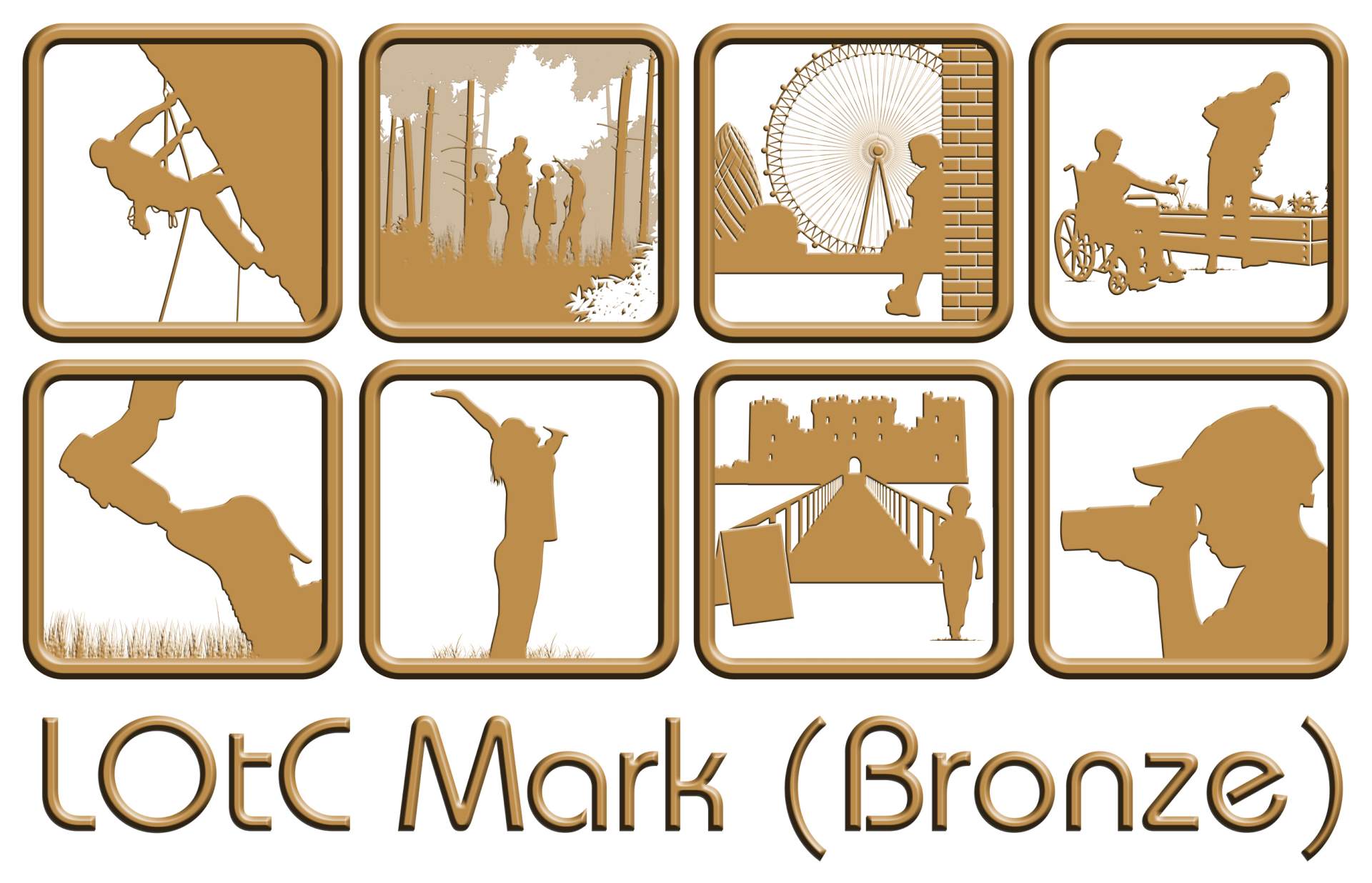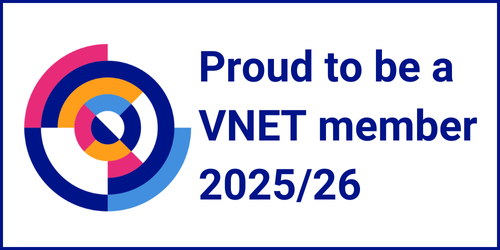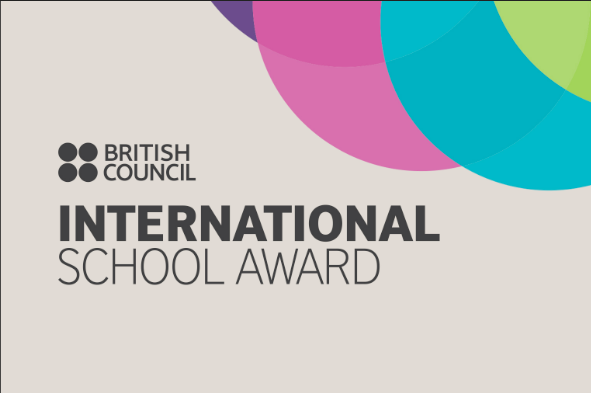Religious Education
At Lakenham Primary School and Nursery our aim is for pupils to achieve religious literacy to enable our pupils able to hold balanced and well-informed conversations about religion and worldviews. Our teaching of Religious Education is based on the Norfolk agreed syllabus, which places emphasis on pupils’ exploration of meaning, purpose and value in the study of all religions. Through this approach, children are expected to develop their own beliefs, and respect the rights of other people to hold beliefs different to their own. Our aims are for children :-
- To know about and understand a range of religious and non-religious worldviews by learning to see these through theological, philosophical and human/social science lenses.
- To express ideas and insights about the nature, significance and impact of religious and non-religious worldviews through a multidisciplinary approach.
- To gain and deploy skills rooted in theology, philosophy and the human/social sciences engaging critically with religious and non-religious worldviews.
The school uses the RE plans as the basis of what is taught through an enquiry question which makes sure the learners reflect and have to dig deep to make links between faiths, no faith and humanism.The aims of RE are described in the Norfolk Agreed Syllabus. We believe RE is concerned with educating children about religion not about instructing them in a particular faith; the latter is the job of family or faith community.
What do we teach in Religious Education?
Click on the image below to see the journey of RE at Lakenham.
Norfolk agreed syllabus
Religious Education supports the values of the school curriculum
- Religious Education reflects the overarching values of the school curriculum, actively promoting the spiritual, moral, social, cultural, physical and intellectual development of the individual and, as a result, enhancing their wellbeing. It places specific emphasis on pupils valuing themselves and others, on the role of the family and the community, on the celebration of diversity in society through understanding similarities and differences, and on care for the environment. Religious Education aims to promote and critically evaluate
the values of truth, justice and respect for all. Religious Education also recognises the changing nature of society, including changes in religious practice and expression, the influence of religion in the local, national and global community and the critique of religions from non-religious groups and individuals.
Religious Education supports the aims of the school curriculum:
Aim 1: The curriculum should enable all children and young people to become successful learners who enjoy learning, make progress and achieve well
- Religious Education provides opportunities for the development of knowledge, skills and understanding that stimulate pupils’ interest and enjoyment in learning and encourage the best possible progress and attainment for all. It promotes the development of creative and resourceful children and young people who demonstrate both independent and inter-dependent learning. Religious Education makes an important contribution to the essential learning skills of literacy, and information and communication technology. It promotes an enquiring approach, enabling children and young people to think for themselves, to process information, reason, question and evaluate issues of truth, belief, faith and ethics.
- Religious Education seeks to enable children and young people to develop an
understanding of the big ideas and events that have shaped - and continue to shape - our world, and encourages them to make sense of these, interpreting the world around them.
Aim 2: The curriculum should enable all children and young people to become confident individuals who are able to live safe, healthy and fulfilling lives
- Religious Education has a significant role in the promotion of spiritual, moral, social and cultural development. It provokes challenging questions about the meaning and purpose of life, beliefs about God, the nature of reality, ethical issues and what it means to be human. Religious Education seeks to enable children and young people to appreciate their own and others’ beliefs and cultures, and how these impact on individuals, communities and society. It seeks to develop children and young peoples’ awareness of themselves and others, offering opportunities for personal reflection and spiritual development as well as preparing all pupils for the opportunities, responsibilities and experiences of life.
Aim 3: The curriculum should enable all children and young people to become responsible citizens who make a positive contribution to society and accepting a range of beliefs.
- Religious Education encourages each child and young person to develop a sense of identity and belonging. It aims to promote religious understanding and respect, to promote understanding between those of faith, and to promote understanding between those who are religious and those who are not. It aims to challenge prejudice, discrimination and stereotyping. It is concerned with the promotion of each pupil’s self-worth, enabling them to reflect on their uniqueness as human beings, to share their feelings and emotions with others and to appreciate the importance of forming and maintaining positive relationships.
- Religious Education seeks to enable pupils to learn about the ways different communities, including those of faith, relate to each other and to society as a whole. In addition, Religious Education is committed to exploring the significance of humanity in relation to the environment, and the beliefs people hold about their responsibility towards it.
- Religious Education aims to enable children and young people to flourish individually within their communities and as citizens in a diverse society and global community.
English Legislation
RE is for all pupils
• Every pupil has a legal entitlement to RE.
• RE is a necessary part of a ‘broad and balanced curriculum’ and must be provided for all registered pupils in state-funded schools in England, including those in the sixth form, unless withdrawn by their parents (or withdrawing themselves if they are aged 18 or over).1
• This requirement does not apply to pupils below compulsory school age (although there are many examples of good practice of RE in nursery classes). • Special schools should ensure that every pupil receives RE ‘as far as is practicable’.
The ‘basic’ school curriculum includes the National Curriculum, RE, and relationships and sex education.
RE is locally determined, not nationally
• A locally agreed syllabus is a statutory syllabus for RE, recommended by a local standing advisory committee for RE (SACRE) for adoption by a local authority.
Right to withdraw
This was first granted in 1944 when curricular RE was called ‘Religious Instruction’ and carried with it connotations of induction into the Christian faith. RE is very different now – open, broad and exploring a range of religious and non-religious worldviews. In the UK, parents still have the right to withdraw their children from RE on the grounds that they wish to provide their own RE. This provision will be the parents’ responsibility. This right of withdrawal exists for all pupils in all types of school, including schools with and without a religious designation. Students aged 18 or over have the right to withdraw themselves from RE. Parents also have the right to withdraw their child from part of RE, and can do so without giving any explanation.


